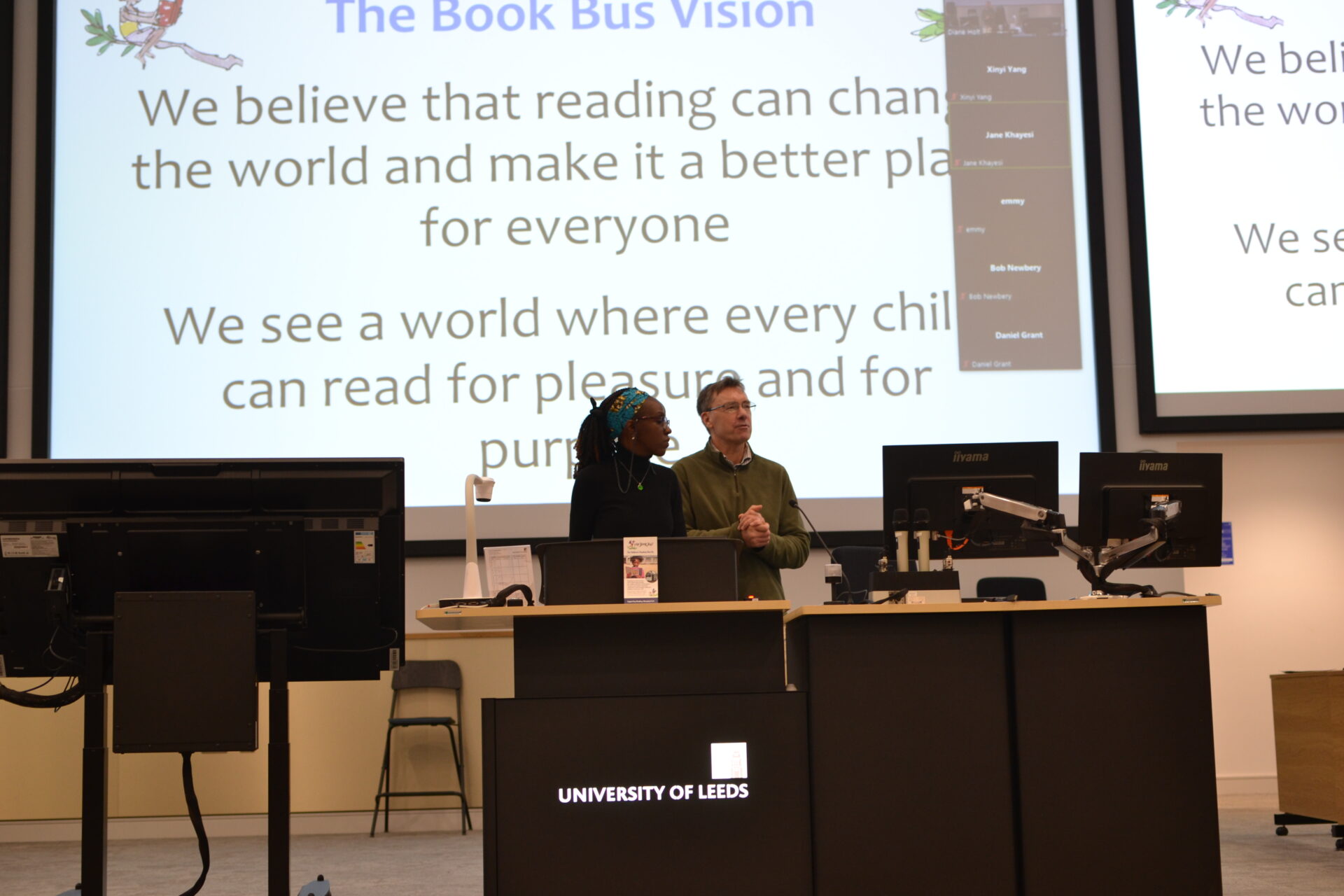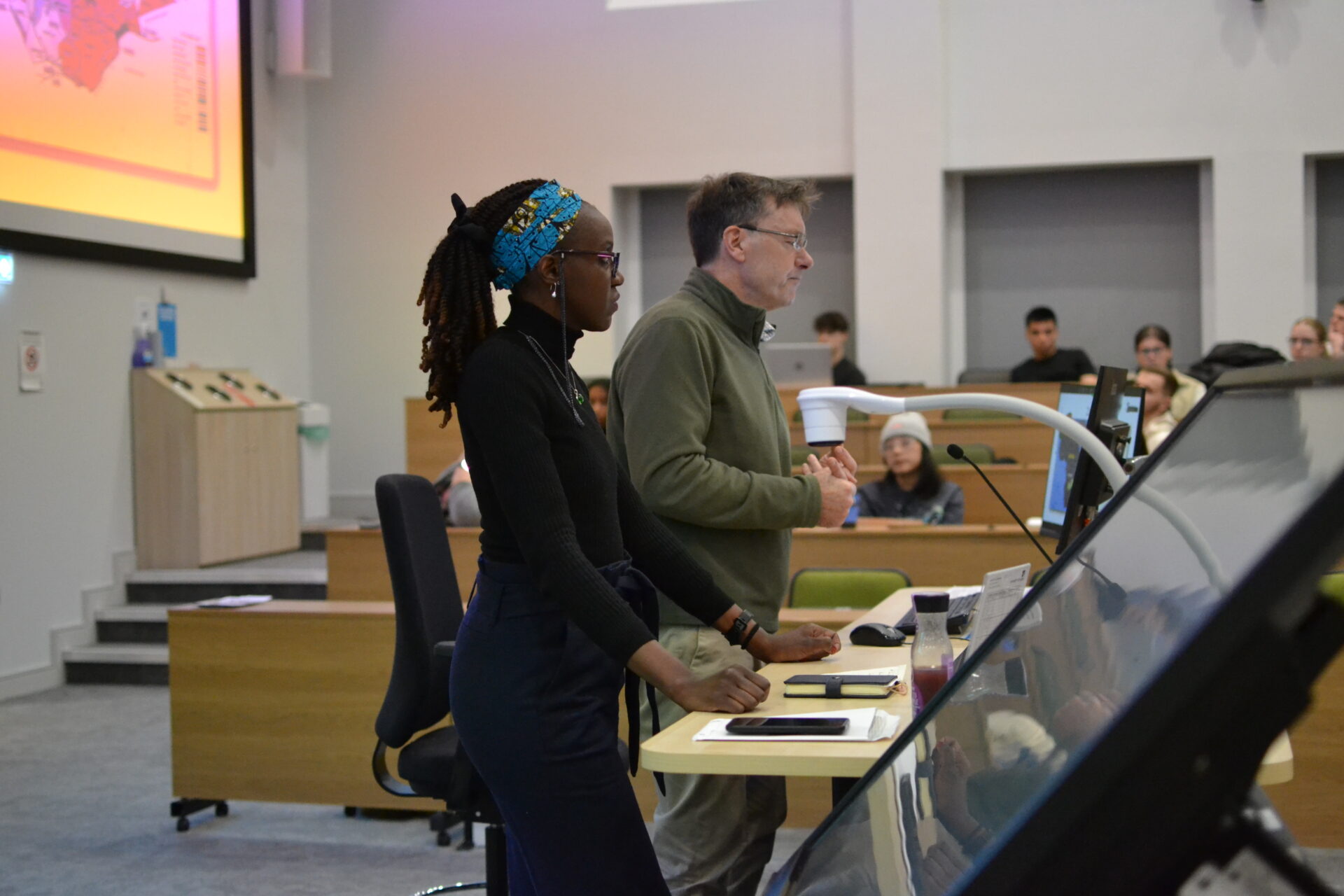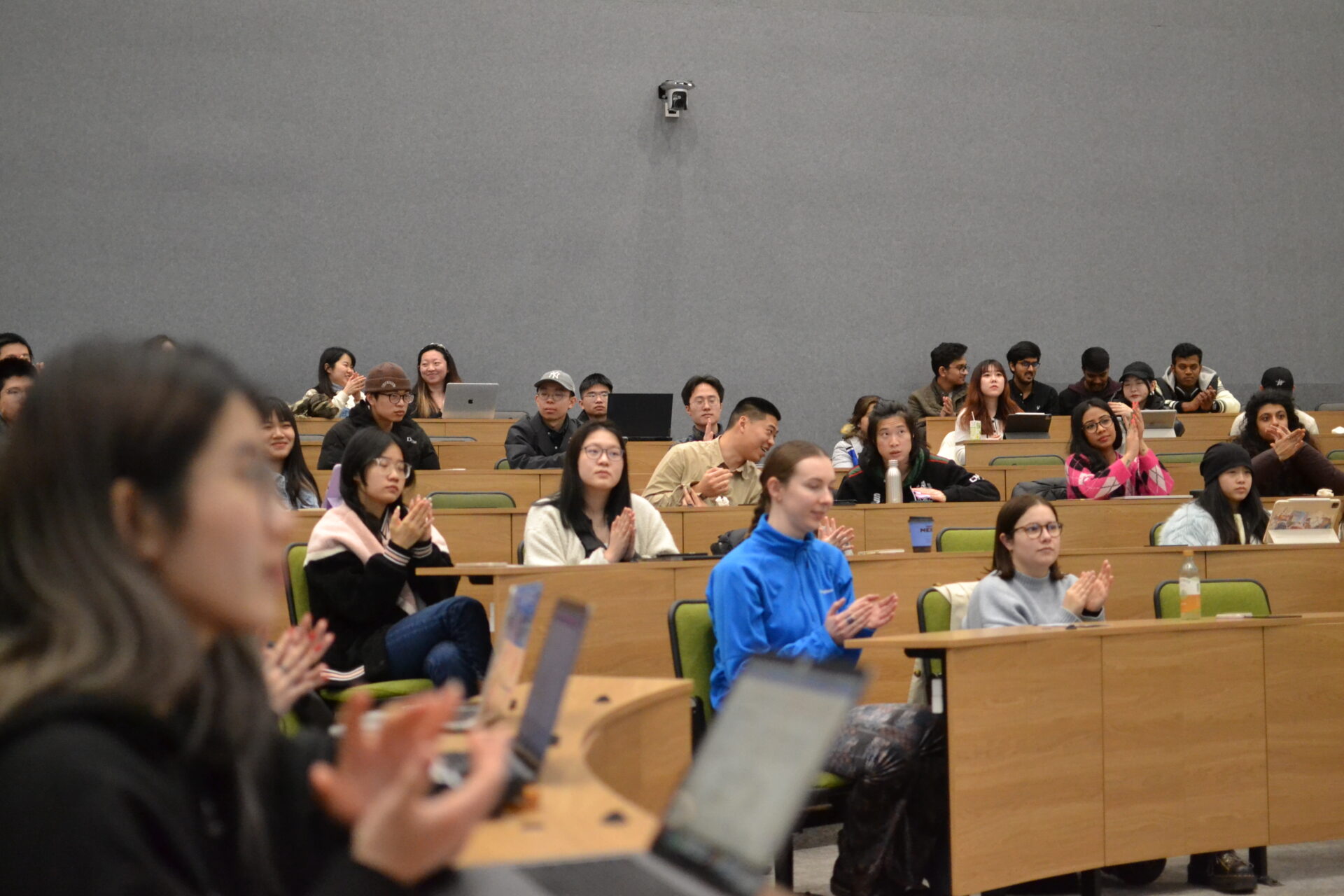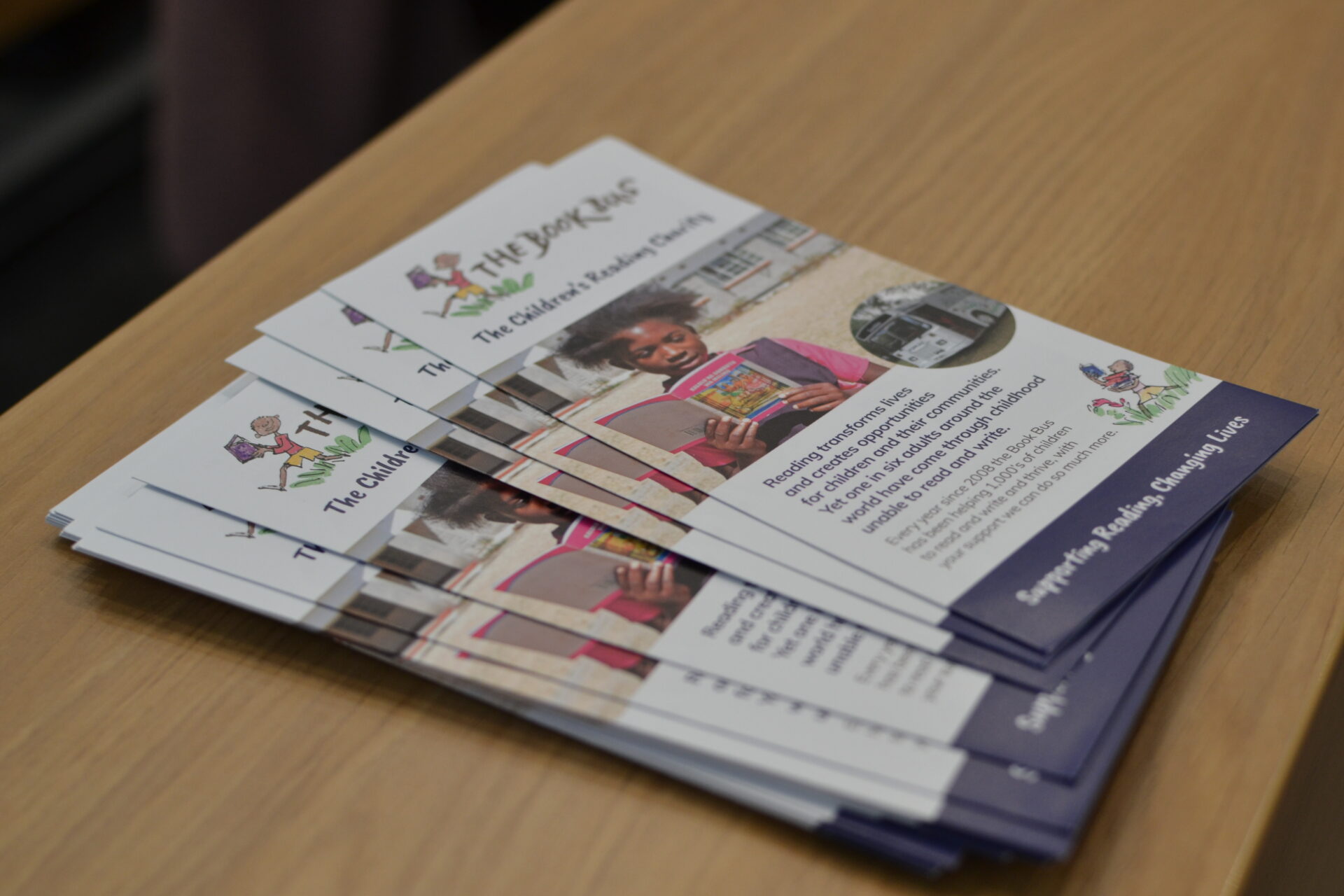Panel Event 2023: the Book Bus Foundation

Reading transforms lives and creates opportunities for children and their communities. Despite this, 1 in 6 adults globally go through childhood without ever learning to read or write. Access to books and literacy programmes are factors that can truly make a difference.
To this end, the Book Bus Foundation began in 2008 with a seemingly simple idea – to take a London bus filled with books to Zambia and donate them to literacy programmes in the region. 15 years later, they have a fleet of 5 vehicles that has travelled 250,000 miles, working in India, Zambia, Malawi, and Ecuador. They work with donors, supporters, volunteers, schools, and teachers to improve literacy, provide books, storytelling materials and libraries for children and teachers. Along this journey they have supported some 100,000 children who can now experience the joy of reading.
On the 7th of March, students at Leeds University Business School were lucky enough to attend an enlightening panel discussion with the Book Bus Foundation and the LUBS Centre for Enterprise and Entrepreneurship Studies. The event was attended by over 200 staff and students in a hybrid format, with 130 joining online. Book Bus CEO David Gordon and Zambia Country Manager Monica Mulenga joined Professor Diane Holt for a fascinating insight into the Book Bus journey from single project, to adventure travel voluntourism business, all the way up to multinational social enterprise providing books to thousands of children every week. The talk highlighted the role that business can play in creating positive social change, and the importance of considering the wider impact of business decisions beyond financial gain.

During the talk, David and Monica discussed the history of the foundation and the problems that led to its creation. They explained that even in 2022, only 11% of children that they tested were able to pass a functional literacy test, demonstrating the vital importance of the Foundation’s work. David discussed his own adventure traveller background which afforded him the skills to help buses effectively move around the dirt and pebble roads of rural Zambia, as well as the volunteer model which supported Book Bus in its early days.
International volunteers would come to Zambia to help mentor the children and teach them to read, offering opportunities for cultural exchange, teaching the children about the world outside of Zambia. In addition to this, the system provided a “voluntourism” income stream, which proved to be an important funding source. The issue, however, was that these volunteers were seasonal, meaning that the children received a lot of help, support, horizon broadening and cultural influence during the 4 summer months of the year, and then nothing for the remaining 8 months.
Enter Monica Mulenga, the “ears on the ground”. Monica wanted to trial a new model and took one of the buses to a local mining town, well outside of the tourist hotspots that previously hosted international volunteers. During this period, Monica discovered that the local library in the town was unused by the children, with many of them not even knowing where or what it was. Monica then pushed for a change in the Book Bus model, moving away from mobilising international volunteers and instead working boots-on-the-ground with local people.

After the Covid-19 pandemic which halted the influx of volunteers, Monica says this change was a “no-brainer” and the Book Bus Foundation now provides literacy support for schools, communities, and public libraries in local areas. By codifying this business model, the Foundation has been able to scale up and work in other countries such as Malawi and Ecuador. David explained this more in depth, giving students an insight into the Book Bus project design process. This model has been enormously successful in helping children as, in 2022, reading levels improved 200% in the six project schools that Book Bus worked with.
The talk ended with a video presentation from a direct beneficiary of the Book Bus’s work. Michelle Zulu explained how the Book Bus has increased not only her literacy, but her confidence. She now has aspirations to become a journalist and encourages everyone to improve their literacy and reading comprehension skills.

Afterwards, students benefitted from a lively Q&A session. The students were inspired by the foundation’s work and asked questions about how they could get involved in similar initiatives in their future careers. Students also asked how they can help support the Book Bus mission. As well as accepting donations of money and books, Monica explained that students can support Book Bus by helping to spread the word through the Foundation’s social media presence.

Overall, the talk was a valuable learning experience for the students, who gained a greater understanding of the intersection between business and social responsibility. This event was an amazing opportunity for those interested in social enterprises, business as a force for good, non-profits, education, literacy, and working in rural and challenging contexts.
CEES would like to extend its warm thanks to David Gordon and Monica Mulenga for their inspiring words, Professor Diane Holt for organising the fantastic event, as well as everyone who attended. To read more about Book Bus, click here.

